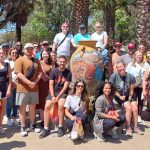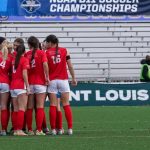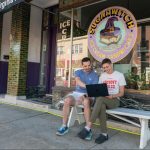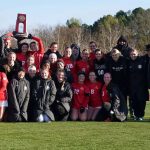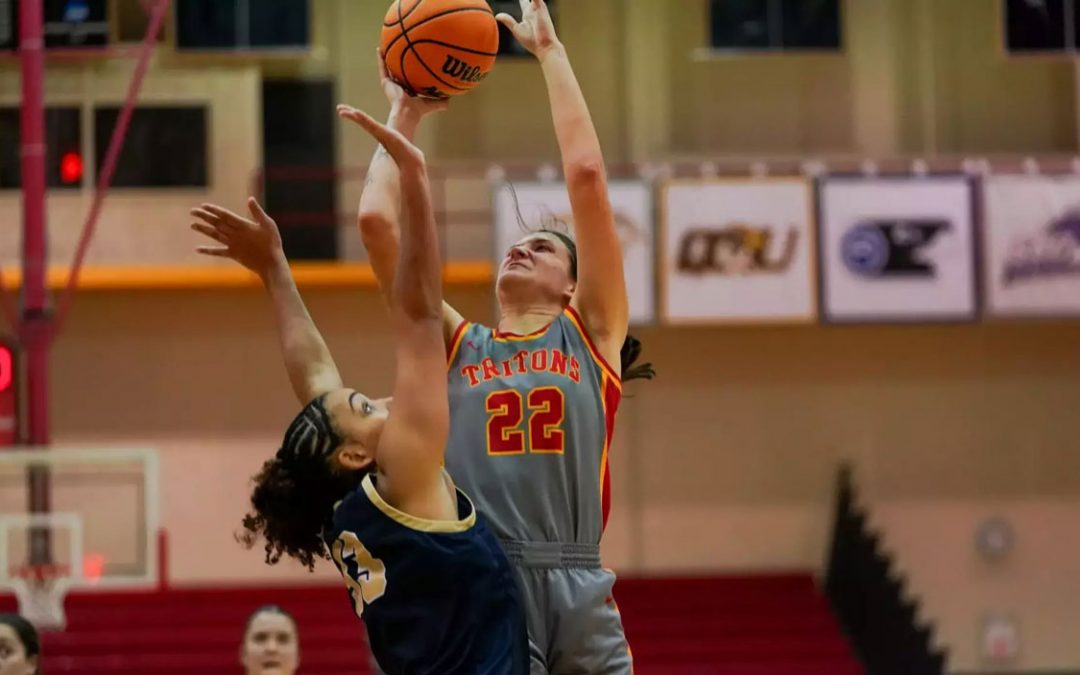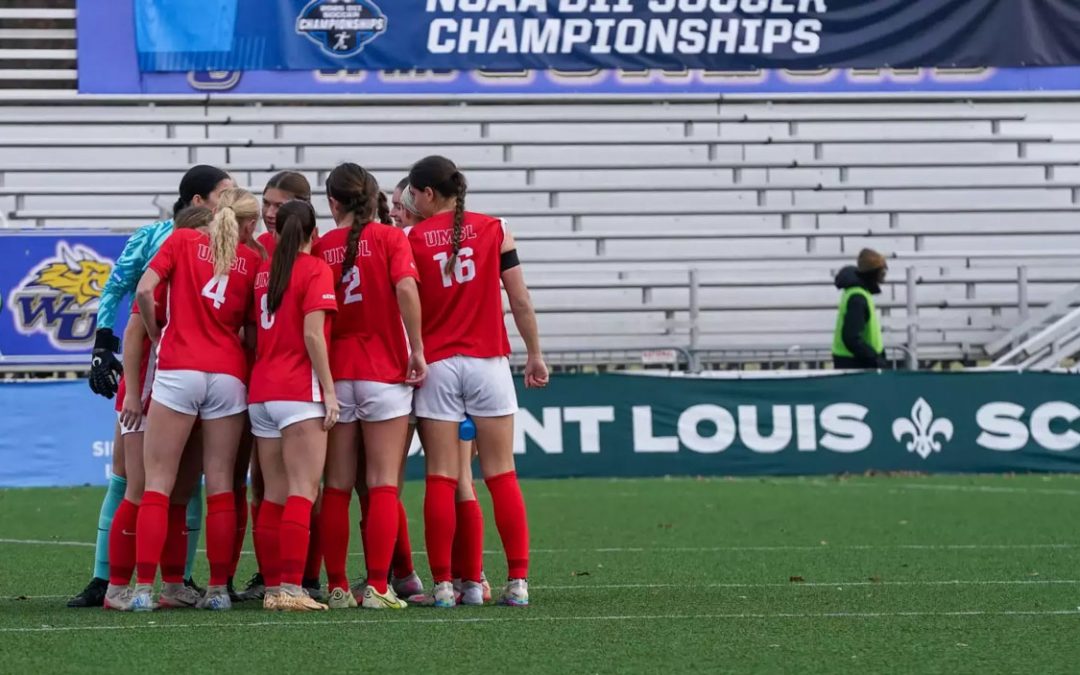
After graduating with his undergraduate degree in accounting as well as an Honors College certificate, Ibrahim Shabazz will return to the College of Business Administration this fall to start on his Masters in Accounting. (Photo by August Jennewein)
Ibrahim Shabazz developed a problem while in the Pierre Laclede Honors College at the University of Missouri–St. Louis.
He wrote too long – which is saying something in the Honors College with its writing emphasis.
For example, there was the horror movie, film and novel class where Shabazz turned in a 16-page paper to the required seven-page minimum. Then there was his independent study on the Battle of Adwa, the final battle of the Italian-Ethiopian War, where Shabazz wrote a 35-page paper in a first-person perspective from Ethiopia’s emperor’s point of view in order to limit his focus.
“Writing is the aspect where I can start at any point and go further into depth whether lightly or heavily in thought,” he said. “In conversations, I can’t exactly go into this same or further level of depth because I don’t want to over talk and possibly bore or confuse people. But then on paper, I have more room to express ideas.”
But writing isn’t Shabazz’s only strength. In May, he graduated with a BS in accounting from the UMSL College of Business Administration. After summer break, he’ll head back this fall to start earning his Master of Accounting.
Despite the apparent differences between his interests, Shabazz sees their commonalities.
“When it comes to accounting, it’s more conceptual,” said Shabazz, who is interested in audit accounting. “I like the process and the fact that you’re investigating portions of accounts.
“There are similarities of this investigation in reading and writing where you often must connect, evaluate and, in many cases, interpret the many components. I trace an aspect of a book and my writings to a different concept or idea, which is how the problems sometimes is found in auditing.”
Shabazz first became interested in accounting because of his grandmother, who’d been in the field prior to becoming a teacher.
“I have been hearing about it since I was young, so I grew into it,” he said.
Living in St. Louis, Shabazz decided to attend UMSL because of its affordability and for convenience – he lives nearby UMSL and commuted throughout his undergraduate classes.
Joining the Honors College was less deliberate. Before his first year, Shabazz received a brochure enticing him to sign up. He didn’t see any reason not to apply for admission.
“I signed up, which was the best decision, I will say college wise,” he said. “The Honors classes were my best classes. It’s where most of my academic growth came from.”
Shabazz has grown by learning to see the larger picture, which has helped him both socially and otherwise. He’s also built up his ability to make connections and see relationships among varied references and knowledge.
Shabazz balanced his Honors College classes with involvement in student life. He joined the Accounting Club and the Student Activity Budget Committee, which complimented his coursework in the College of Business Administration.
His experiences in UMSL Business were also positive ones.
“They really want to make sure people succeed,” he said. “Through the possible challenges you face, they are there to advance you further toward your goals.”
He also found a mentor figure in the form of Stephen Moehrle, professor and chairman of the Department of Accounting. Among other things, Moehrle helped Shabazz find an internship at PwC for the summer before graduate school.
“Ibrahim is such a talented, energetic and engaging member of our campus community and our accounting programs,” Moehrle said. “He has been a leader on campus since his arrival here, and I am confident he will be the same for the organization that is lucky enough to recruit him.”
Shabazz, who is going after his Certified Public Accountant credential while earning his MA, decided to go straight into more school for practical reasons.
“From my understanding, the CPA exam requires 30 more hours of coursework,” he said. “Getting my master’s will fulfill this requirement.”
Now that he’s accomplished his accounting BS, Shabazz is thinking about future targets outside of college.
“As for what’s ahead, I plan to work in an accounting firm where I will gain experience and learn of the complexity about the field.” Shabazz said.



